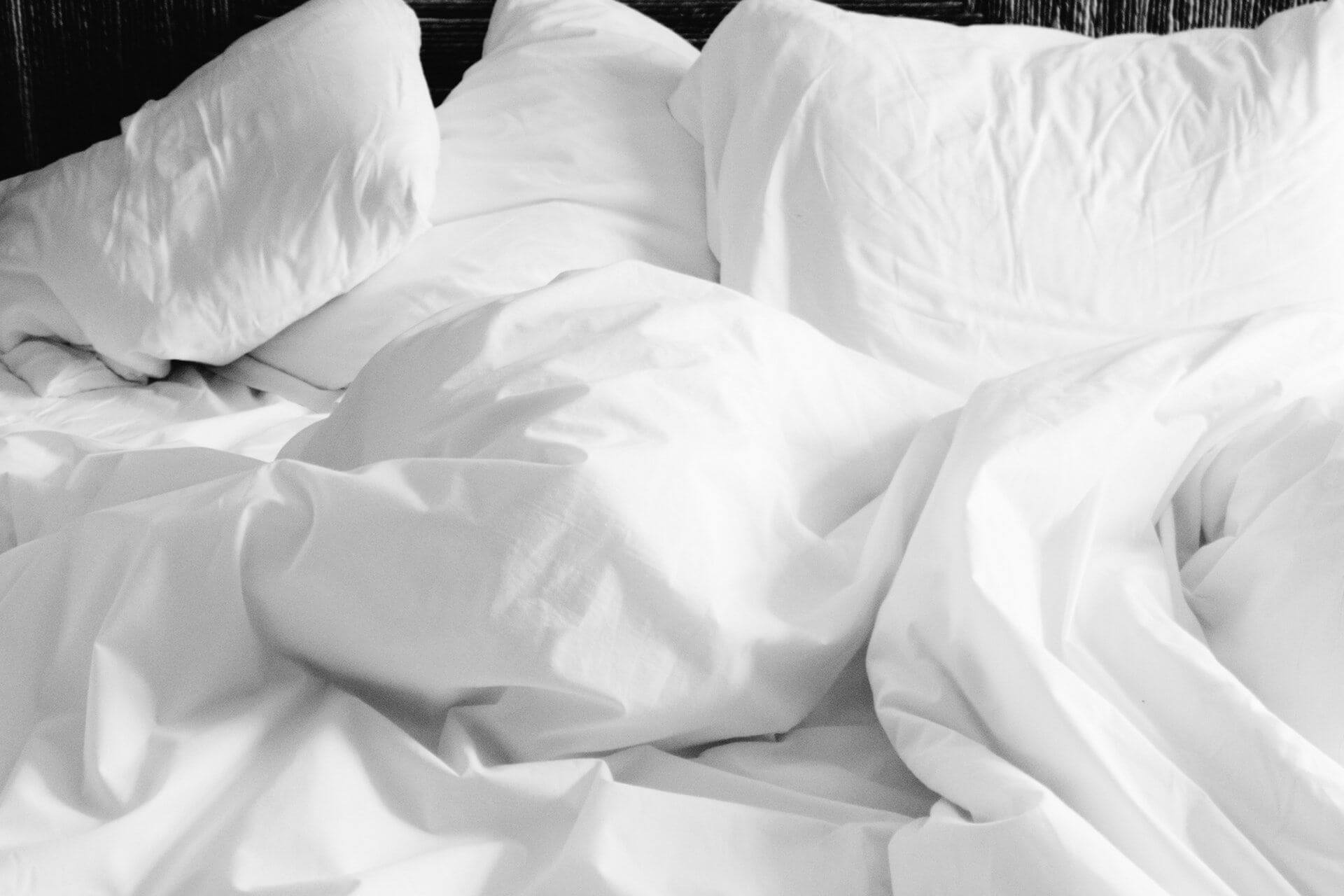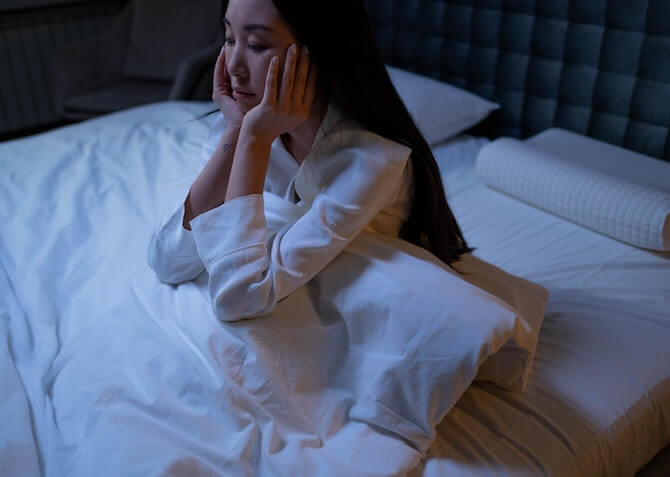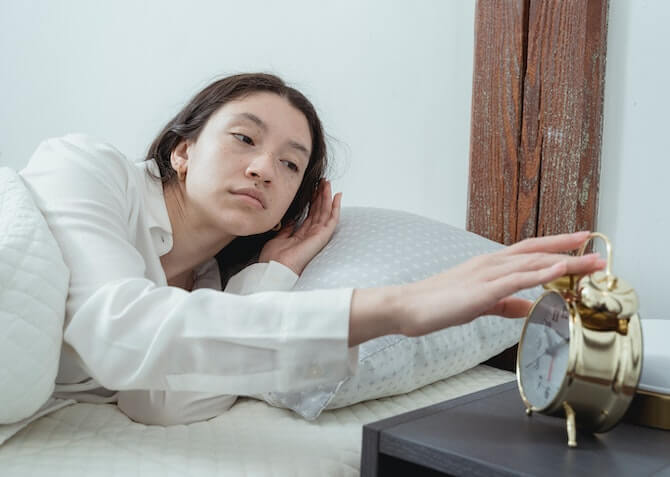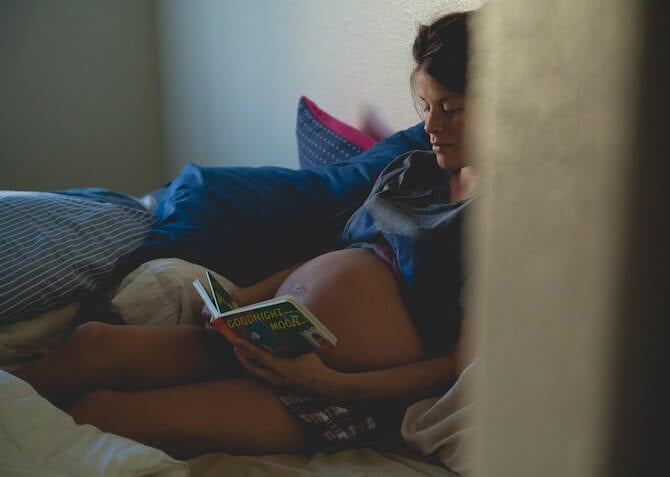
How much sleep do you need to stay healthy?
We spend around a third of our lives asleep[1]. It plays a huge role in staying healthy, giving our bodies the chance to repair and rest after a long day, which is why it's so important to get a healthy amount every night. But how much sleep do you need to be able to stay focused and well?
In this guide, we'll look at:
- How many hours of sleep do you need?
- How much sleep do you need by age?
- What happens if I'm getting the wrong amount of sleep?
- Can your body get used to less sleep?
- What can affect sleep duration?
How many hours of sleep do you need?
For the majority of people, it's recommended that 7-9 hours is a healthy range for adults to aim for when planning sleep[2]. This is the typical length that most people will need to wake up feeling fully refreshed and ready for the day ahead. This is because it gives time for your body to go through the 4-6 full sleep cycles that you need to get the right balance of rest and repair.
However, it's important to remember that everyone is slightly different, and this recommendation is a range, so your optimal sleeping time could well be somewhere in between this length of time. In addition, sleeping needs will change with age, so if you find yourself needing more or less, then this could be natural.
Are five or six hours of sleep enough?
If you don't regularly get the recommended 7-9 hours of sleep, you might find yourself wondering if the 5-6 hours you do get is enough to get you through the day.
While the effects of losing an hour or two might leave you feeling a little tired but mostly okay through the day, the real danger is when you begin to lose this hour on a habitual basis.
Not getting the right number of hours over a few days in a row can end up with you building up a sleep debt[3], which is the cumulative effect of not getting enough sleep.
When you develop a deficit, even after a couple of days, you'll begin to feel its impact in several ways in the short term, including:
Grogginess upon waking: Each time you sleep, your body will expect more to pay back the debt, so you'll end up forcing yourself awake and feel groggy as a result. You may even feel a little dizzy and clumsy for the first 30 minutes.
A feeling of fatigue: Throughout the next day, you may feel fatigued. This is because you have missed out on the deep sleep your body needs to rest and repair itself, leaving you not at 100% for the day ahead.
Your memory may be impaired: Sleep is when your brain collates and processes memories from the day, so not getting enough can leave you feeling forgetful.
Your performance may suffer: Living with a sleep debt can impact your productivity, mood, and alertness, so you may feel like you aren't able to perform to your full potential when at work or doing a task that requires focus.

You may feel hungrier: A sleep debt can also cause problems with your appetite, leaving you feeling unsatiated between meals.
This is because a deficit can cause high levels of ghrelin, the hunger hormone, to be present in your body[4].
If you don't catch up on sleep and allow the debt to go on in the long term, then you may be putting yourself at risk of health conditions like obesity, diabetes, high blood pressure, heart attack, stroke, and Alzheimer's[5], which studies have linked to not getting a healthy amount of rest.
Age is a big factor
Age is one of the major factors that influences how much sleep we need.

7–9 hours is the recommended amount of sleep for the average adult (aged 18–65), but sleep needs change with age, especially for the young and old.
Generally speaking, infants and children need a lot more sleep than other age brackets, while older people need less rest than everyone else.
When we are very young, we sleep for most of the day, but this shifts as we get older, to the point where a retiree may only need a few hours.
When we are young, our bodies and emotions develop a lot. So we need time to rest and heal from all the things we do. We also need a break to understand and remember all the new things we learn every day.[6].
Let's look at some of these phases of sleep in more detail:
- Newborns
- Babies
- Children
- Teenagers
- Adults
- Elderly people
How much sleep do newborns need?
Between 0–3 months: 14–18 hours recommended (but can be 10.5–20 hours)
In those first months, a newborn has not established their circadian rhythm (the natural process controlling the sleep-wake cycle), which means that they adopt a polyphasic pattern where they sleep in 2–4 hour naps throughout the day.
They also have a different sleep cycle, which sees them getting more REM sleep as their brains go through development, but, unlike adults, they tend to move around during this phase of sleep.
How much sleep do babies need?
Between 4–11 months: 12–16 hours recommended (but can be 10–19 hours)

At around 12 months old, a baby will begin to sleep more like an adult, although for much longer. This means that they will sleep more at night — typically 10–12 hours — with a nap or two during the day of around 1–2 hours to top up their sleep.
There is still a lot of REM sleep in their sleep cycle, but they begin to adopt the non-movement behaviour of an adult during this phase.
How much sleep do children need?
Between 1–2 years: 11–15 hours recommended (but can be 9–17 hours)
Between 3–5 years: 10–14 hours recommended (but can be 8–15 hours)
Between 6–13 years: 9–12 hours recommended (but can be 7–13 hours)
As a child gets older, the amount of sleep that they need decreases, becoming similar to the pattern of an adult, with less napping during the day.
While kids aren't undergoing the same rate of development as newborns or babies, getting the right amount of sleep is still very important. If they do not get enough, they may experience issues with their weight, mental health, behaviour, and cognition[7].
Toddlers (1–2 years) will still nap through the day like babies, but this will eventually phase into 1–2 hours in just one napping session. Nursery-aged kids (3–5 years) may still take a daily nap, but these will get shorter, and may even stop.
As kids grow towards being a teenager (6–13 years), they will generally need less sleep, but development can vary, so some may still need more sleep than others.
How much sleep do teenagers need?
Between 14–17 years: 8–11 hours recommended (but can be 7–12 hours)

When a child hits puberty and becomes a teenager, they begin the next phase of their growth into an adult. Like newborns and babies, this means that they still need more sleep to allow for mental, physical, emotional, and social development to take place and for their bodies to rest.
Unfortunately, research has found that 73% of teens don't get the recommended amount of sleep in these formative years[8], mainly because they are expected to study and lead lives more like adults.
A lot of teenagers face major challenges getting the right amount of restorative sleep, which is leading some parents and schools to adopt more tailored schedules, allowing for naps and later starts.
How much sleep do adults need?
Between 18–25 years: 7–10 hours recommended (but can be 6–12 hours)
Between 26–64 years: 7–9 hours recommended (but can be 6–11 hours)
After undergoing puberty through their teenage years, an adult should begin to get the amount of sleep that will remain the same for most of their life.
In early adulthood from 18–25, the length of a night's rest can stay on the slightly longer side as the body adjusts and goes through the last stages of teen development.
By around the age of 26, the amount of sleep needed will have settled into the standard 7–9 hours recommended for adults.
How much sleep do elderly people need?
65 years and over: 7–9 hours (but can be 5–10 hours)

Once an adult reaches the later stages of life, the recommended length of sleep remains the same, but, in reality, it may be harder to continue getting those hours.
According to studies, around half of elderly people have trouble sleeping for the number of hours they should each night[9], which has been attributed to a range of causes by experts.
For one, older people experience much lighter sleep as part of their sleep cycle, which means that they wake up much more easily than younger people who get deeper sleep.
Research has also found that the elderly take longer to get to sleep, with many trying for 30 minutes or more before being able to drift off. They may also experience medical issues that can disrupt their night, such as restless leg syndrome (RLS), periodic limb movement disorder (PLMD), and side effects of medication.
What happens if I'm getting the wrong amount of sleep?
In an ideal world, everyone would be able to get a healthy level of sleep that matches the demands of their age group. However, it may be the case that you're getting the wrong amount, which has the potential to have long-term effects on your health and well-being.
An unbalanced sleep cycle can work both ways and can be a result of either under-sleeping (not getting enough rest) or oversleeping (getting too much rest).
Under-sleeping

Sleep is an essential part of your biological process as it gives your body time to rest and repair, so missing out on rest can have major implications for your health. Some of the problems that a lack of sleep can cause are:
- Disruption of your immune system
- Fatigue
- Weight gain
- Mental health problems like anxiety, stress, and depression
- Increased risk of major health problems like diabetes and heart disease
Oversleeping

While not getting enough sleep is harmful, spending too much time in bed also carries its risks and can have negative effects on your life. These include:
- Weight gain
- Headaches and migraines
- Muscular problems and back pain
- Disruption of your body clock
- Increased risk of major health problems like diabetes and heart disease
Can your body get used to less sleep?
One of the most commonly shared sleep myths is that you can "train" your body to survive on fewer than 7–9 hours of sleep. Though some people can function to their usual level on 6 or fewer hours of rest, they are very rare, and the trait may be genetic[10], so not everyone can do this.
The myth likely stems from people who believe they can get by on 6 hours or less rest, but don't realise they have become used to the negative effects of having a sleep debt.[11]
This means that their body needs the same amount of sleep as everyone else, but they have just started performing at a lower level. The decline can happen gradually, so it may be unnoticeable.
What can affect sleep duration?
If you or someone in your household is unable to regularly get the recommended sleep for their age, then there is likely a sleep disruptor that is either preventing or disturbing rest.
There are a variety of reasons that this can happen, and we've listed the most common below so they can be addressed:
Sleep disorders: Nearly every sleep disorder has the potential to stop you from getting your recommended rest.
Whether you are suffering from insomnia, sleep apnoea, restless leg syndrome, or something else, you might find it harder to drift off or end up waking through the night. There are even the likes of hypersomnia and narcolepsy that can cause you to get too much rest throughout the day, which can also be harmful to health.
If you suspect you are suffering from a sleep disorder, be sure to seek the advice of a medical professional.
General health conditions: Some health conditions that aren't necessarily directly tied to sleep can prevent you from sleeping the whole night.
Asthma, allergies, hyperthyroidism, and acid reflux are some of the more common, but anything that causes discomfort in the evening has the potential to prevent sleep or wake you up.
Again, seek medical help to sort out any issues that are disturbing your rest.
Mental health issues: Anxiety, stress, and depression can cause serious sleep problems, preventing you from getting some decent rest.
You may wish to partake in a relaxing activity before bed, such as reading, taking a bath, or yoga, which can help to alleviate worry. If you simply can't relax or find yourself waking up with worry, then it's best to seek advice from a doctor.
Changes to your sleep schedule: Humans are creatures of habit that rely on their circadian rhythm to regulate their wake-sleep cycle.
This means that if you're not keeping to a regular schedule with your rest, your body will be constantly confused, and you will find it harder to get that recommended sleep.
Plan ahead for any disruptions to your cycle, such as travelling to a different time zone or daylight savings, and try to eliminate any reasons you aren’t sticking to a regular bedtime and waking time.
Your diet: What you eat and drink before bed can impact how much sleep you're able to get.
The likes of sugary, caffeinated, and alcoholic food and beverages all contain substances that can make it hard to drift off or wake you through the night.
Timing is important too, as trying to digest a large meal at bedtime or having to wake up and empty a full bladder are both ways you can end up getting less sleep.
Noise pollution and disturbances: If you live in an area that is busy through the night, then you may find that noise pollution from outside can wake you from your sleep. Likewise, any disturbances from inside, such as children, pets, or a noisy partner, can also wake you.
Napping: If you find that you're napping through the day, doing so for too long or too late in the day can disrupt your sleep schedule. Try to avoid napping beyond the late afternoon and resting for longer than one 90-minute sleep cycle.
Room conditions: If your room is too hot or cold, or not dark enough, you are not creating the ideal conditions for sleep, and you may find it harder to drift off or end up waking in the night.
Aim for a temperature between 16–18⁰C and make your bedroom as dark as possible, with heavy curtains or blackout blinds, if necessary.
Uncomfortable mattresses and bedding: An uncomfortable and unsupportive mattress can make it difficult to get to sleep and could even cause you to wake up with aches and pains. If you think yours is too old or worn, consider investing in a new mattress or topper to make sure you are comfy ahead of bedtime.
You should also check your duvet tog to see that you have suitable insulation for the time of year, which will ensure you're not too hot or too cold. Again, consider buying bedding with the right tog rating if you don't own any.
Note: If you're having trouble getting to sleep at all, it's worth reading our guide to common sleep problems and disorders that can make drifting off more difficult.
As well as your age and disruptors, there are a few other factors that can impact the amount of sleep you need, such as:
Pregnancy: The amount of sleep you need when you're pregnant can increase because of the changes occurring in your body.

In the first twelve weeks, there are many hormonal changes, with one being increased tiredness and the need to rest[12].
In later stages, you can feel more tired from the exertion of carrying extra weight.
Past sleep deprivation: Even if you have resolved any disruptors impacting your sleep, you may feel tired for the next few days as your body needs to catch up on the missed sleep.
This can mean that you sleep for longer periods if allowed.
Poor sleep quality: If you are not able to get the right amount of full sleep cycles in the night, whether as a result of a disruption or not, your body may strive for better quality rest by demanding more sleep.
If you’re looking for more sleep advice, be sure to check out Dormeo's advice centre for other sleep guides and read our blog. You can also get in touch with any questions you may have.
[1] Aminoff, M. Boller, F. Swaab, D. (2011). Volume 98. Handbook of Clinical Neurology. Available at: Science Direct website
[2] National Sleep Foundation, National Sleep Foundation Recommends New Sleep Times. Available at: National Sleep Foundation - Recommends New Sleep Times.
[3] The Sleep Council, Sleep Debt. Available at: Sleep Council website.
[4] National Sleep Foundation The Connection Between Sleep and Overeating. Available at: National Sleep Foundation website.
[5] The Sleep Council, Sleep Debt. Available at: The Sleep Council - Sleep Debt.
[6] National Sleep Foundation, How Much Sleep Do Kids Need? Available at: National Sleep Foundation website.
[7] Ibid.
[8] Wheaton. A. Cooper, A. Croft, J. Jones, S. (2018). Short Sleep Duration Among Middle School and High School Students. Morbidity and Mortality Weekly Report. Available at: CDC website
[9] Ancoli-Israel, S. Stepnowsky, C. (2009). Sleep and Its Disorders in Seniors. Sleep Medicine Clinics. Available at: National Library of Medicine website.
[10] AMJC, A Rare Gene Mutation Is Associated With Requiring Less Sleep, Researchers Say. Available at: AMJC website.
[11] Penn State, Probing Question: Can you train yourself to need less sleep? Available at: Penn State University website.[12] NHS, Tiredness in pregnancy. Available at: NHS website.







Leave a Reply